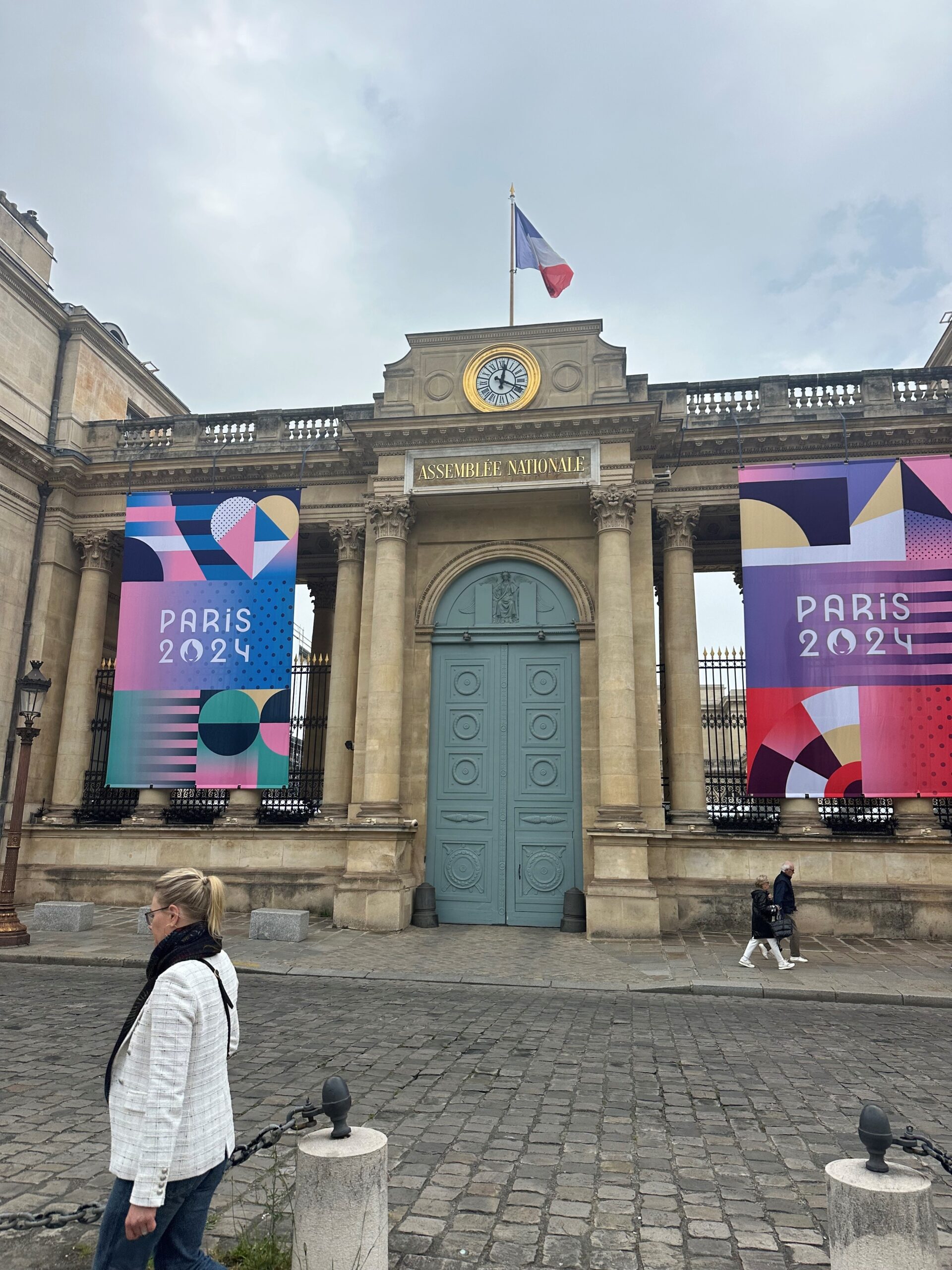
In a few days, the 2024 Summer Olympics will begin in Paris, France. Your Survival Guy was recently in Paris, and the city didn’t seem quite prepared at the time. But it appears that progress is being made. Much of the progress and glamour of the Paris games will be attributed to France’s wealthiest man, Bernard Arnault, and his family, who control the world’s largest luxury conglomerate, LVMH.
Tom Lamont explains the intense support for the Paris Olympics by LVMH’s many luxury houses in GQ, writing:
Paris, that most presentable of capitals, is being polished before it hosts the Summer Games. Around the Champs-Élysées, where some of the benches date to the 1850s, the seats are getting a new layer of paint before an estimated 15 million visitors arrive to scuff them up again. High on the steps of the National Assembly, I watch as workers fuss with temporary statues of Olympians, lowering them into place with cranes. France no longer has a monarch or a royal family, but some say it gets close in the form of Bernard Arnault, owner of the luxury-goods conglomerate LVMH, and his five children, each of whom oversee a part of their father’s empire. The Arnaults and LVMH are closely involved in the coming Games, major sponsors who mean to tempt those millions of visitors (and upwards of 1 billion more viewing on TV) with fine handbags and belts, fragrances and jewels, a whiff of LVMH’s trademark savoir faire. A former editor of Vogue France, Carine Roitfeld, has agreed to collaborate with LVMH and the Arnaults, designing tuxedos for opening night. Just outside Paris, in a private workshop run by Louis Vuitton, one of LVMH’s luxury brands, artisans are making trunks to house the tournament’s medals.
A gentle bock-bock-bock of mallet on wood serves as a hypnotic soundtrack to the work. It’s late in March: less than four months to go before the Games begin. Despite the deadline, production is measured and stately. Wearing smocks or cardigans, wielding slide rules, chisels, scalpels, hairdryers, and rattling boxes of tacks, the artisans here have the cool of craftspeople who’ve been asked to respond to all sorts of whims over time. Vuitton became an immortal name in France through the manufacture of brass-cornered trunks, trunks adapted to meet the demands and dreams of wealthy customers, trunks designed to cradle: handbags, watch collections, writing desks, even the World Cup. During the tour, I’m told they won’t build anything for the storage of corpses (they’re sometimes asked to) or for weapons (except for the occasional hunting rifle), but there have been trunks designed to become walk-in golf lockers, trunks that contain foldaway beds.
On Your Survival Guy’s many trips to Paris over the last decade or so, visits to LVMH stores and locations have been associated with swarms of ultra-wealthy Chinese tourists eager to bring luxury goods back home with them. But on my most recent trip, they were conspicuously absent. I wrote to you then that it was a signal of the poor health of the Chinese economy.

You see, luxury brands have come to rely heavily on Chinese consumers. Despite China’s communism, or maybe because of it, the country has spawned an elite class of consumers who have inordinate wealth they’re willing to spend on conspicuous luxury. But as the economy sours, that’s changing. Luxury brands, reports Carol Ryan in The Wall Street Journal, are losing Chinese customers who “are spending less because their homes are falling in value.” Ryan also explains that luxury brands have ignored middle-class consumers, and now that is coming back to bite them. She writes:
Meanwhile, Americans earning less than $50,000 a year, who developed a taste for luxury during the pandemic, have pulled back most sharply, based on credit-card spending data from Bank of America. Middle-income consumers earning up to $125,000 have also tightened their belts as higher prices across the economy have left them with less money for luxuries.
The pullback is putting weaker luxury brands under strain. Last week, British trench coat maker Burberry scrapped its dividend, replaced its chief executive officer and issued a profit warning after sales slowed dramatically in the three months through June. Its shares have plunged to levels last seen in 2010.
Operating profit at watchmaker Swatch fell 70% in the first six months of the year compared with the same period of 2023 because of a “huge reduction in demand” in China. German designer Hugo Boss also issued a profit warning and said shoppers have deserted its stores in China.
The industry’s woes are partly self-inflicted. Brands have raised the price of their goods so high that they have become unaffordable for many middle-class shoppers. In a push to “elevate” the label, Burberry released new handbags that were 58% more expensive on average than older models, according to Bernstein analysis. The strategy alienated its traditional customers without a compensating lift from rich shoppers.
To lure shoppers back, some brands are quietly cutting prices. These aren’t end-of-season discounts, but a permanent reset of full-price items. Lowering prices this way used to be a no-no in the luxury industry, as it sends a signal that the brand misjudged the value of its goods.
Action Line: The Paris Olympics are coming at a potential turning point for luxury, and perhaps it will reinvigorate the attention of the billions of middle-class shoppers who will be watching the games across the world. Keep your eye on the luxury of the games and what that means for the world’s economy with Your Survival Guy. Let me know what you think here. In the meantime, click here to subscribe to my free monthly Survive & Thrive letter.

Originally posted on Your Survival Guy.



